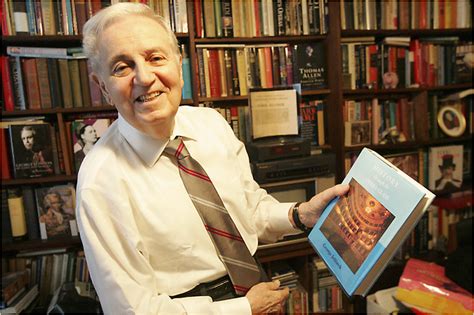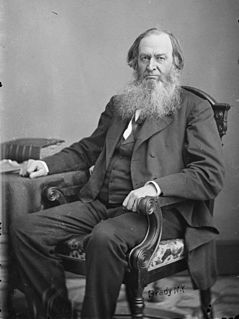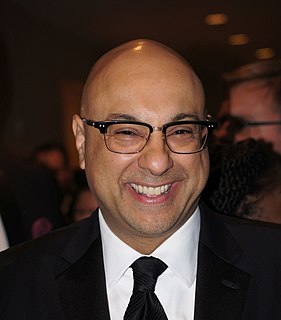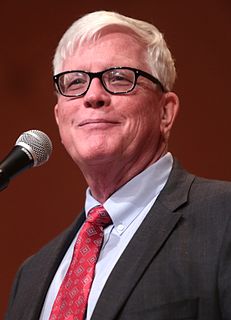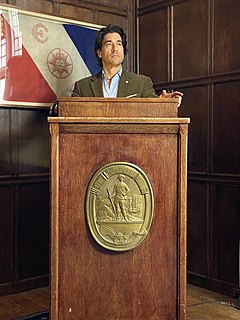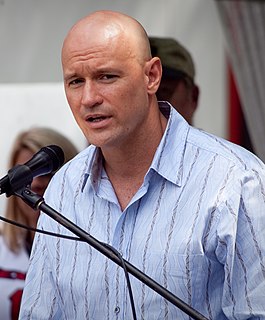A Quote by George Jellinek
The idea of legally establishing inalienable, inherent and sacred rights of the individual is not of political but religious origin.
Quote Topics
Related Quotes
The Bible and its teachings helped form the basis for the Founding Fathers' abiding belief in the inalienable rights of the individual, rights which they found implicit in the Bible's teachings of the inherent worth and dignity of each individual. This same sense of man patterned the convictions of those who framed the English system of law inherited by our own Nation, as well as the ideals set forth in the Declaration of Independence and the Constitution.
Religious freedom is often referred to as America's first freedom. Our country was founded by religious exiles and built on the belief that God has given all people certain inalienable rights. Government's role in society is to protect these rights and ensure that we are safe from religious persecution and discrimination.
Individualism regards man - every man - as an independent, sovereign entity who possesses an inalienable right to his own life, a right derived from his nature as a rational being. Individualism holds that a civilized society, or any form of association, cooperation or peaceful co-existence among men, can be achieved only on the basis of the recognition of individual rights - and that a group, as such, has no rights other than the individual rights of its members.
A generation may bind itself as long as its majority continues in life; when that has disappeared, another majority is in place, holds all the rights and powers their predecessors once held, and may change their laws and institutions to suit themselves. Nothing then is unchangeable but the inherent and inalienable rights of man.
The U.S. was founded by a group of political leaders who signed a document which says, "We are endowed by our Creator with certain inalienable rights." That means that all of your political rights come from God and you then loan some of your power to the State which is why the Constitution begins, "We, the People of the United States.
The Declaration of Independence was to set forth the moral justification of a rebellion against a long-recognized political tradition - the divine right of kings. At issue was the fundamental question of whether men's rights were God-given or whether these rights were to be dispensed by governments to their subjects. This document proclaimed that all men have certain inalienable rights. In other words, these rights came from God.
the right to marry whoever one wishes is an elementary human right ... Even political rights, like the right to vote, and nearly all other rights enumerated in the Constitution, are secondary to the inalienable human rights to 'life, liberty and the pursuit of happiness' proclaimed in the Declaration of Independence; and to this category the right to home and marriage unquestionably belongs.
